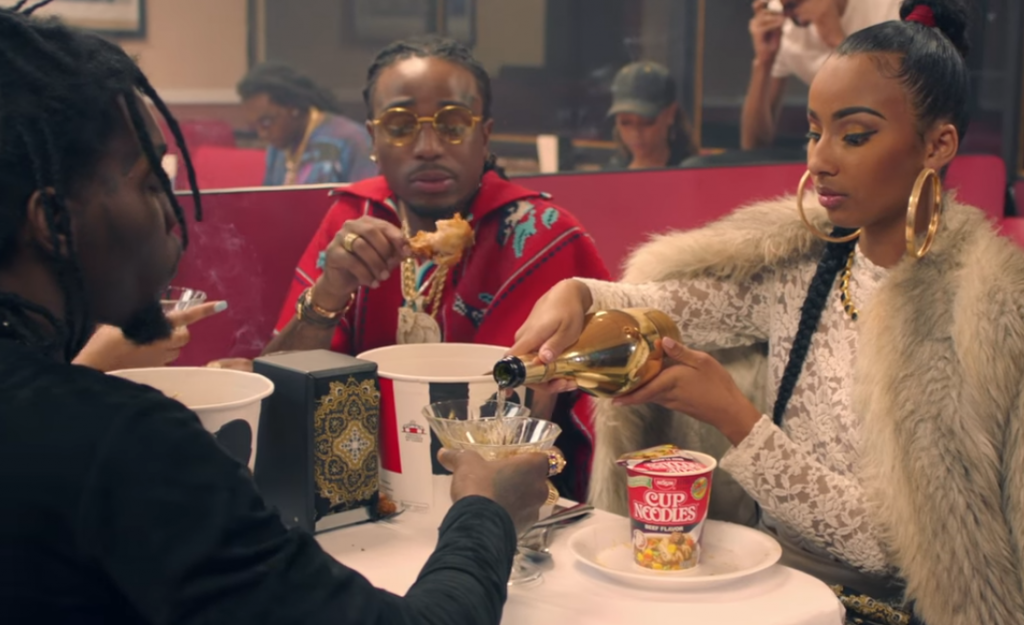Michael Pollen’s book In Defense of Food, and Nutritionalism at large, have always had a bit of affluent or bougie undertones but the end of this book amplified that undertone to an overtone.  The book ends with a third act that is all about getting over Nutritionalism and eating better and thus a healthier life. The “Pay more, Eat Less” section of the book stood out in its lack of class consciousness and its affect on eating because it really didn’t examine why or why not people may choose to buy food in cheap large servings as opposed to smaller more high-quality food. Often people simply don’t have enough money to eat small high-quality meals, often, in fact, many people have to get the most calories out of their dollar as they can regardless of nutritional value. Another one of Michael pollens rules that I found troubling was “Don’t get your fuel from the same place your car does” which I took to mean don’t get your food at Gas Stations/Mini Marts/Convenience store. However, again this is a recommendation that fails to look at why so many people get their food from these locations. It may have been helpful to mention in the book about Food Deserts or areas of the country where you only have those types of places available to shop at. Not everyone can live near a Whole Foods or Trader Joe’s. The book also didn’t touch on enough of the political and economic systems that dictate how people eat. Remarking on those systems and how people might change them in order to make their overall health better would have been a great edition. The lack of class analysis really hurts the book and sticks out as a missed opportunity to present a more holistic view of food and eating.
The book ends with a third act that is all about getting over Nutritionalism and eating better and thus a healthier life. The “Pay more, Eat Less” section of the book stood out in its lack of class consciousness and its affect on eating because it really didn’t examine why or why not people may choose to buy food in cheap large servings as opposed to smaller more high-quality food. Often people simply don’t have enough money to eat small high-quality meals, often, in fact, many people have to get the most calories out of their dollar as they can regardless of nutritional value. Another one of Michael pollens rules that I found troubling was “Don’t get your fuel from the same place your car does” which I took to mean don’t get your food at Gas Stations/Mini Marts/Convenience store. However, again this is a recommendation that fails to look at why so many people get their food from these locations. It may have been helpful to mention in the book about Food Deserts or areas of the country where you only have those types of places available to shop at. Not everyone can live near a Whole Foods or Trader Joe’s. The book also didn’t touch on enough of the political and economic systems that dictate how people eat. Remarking on those systems and how people might change them in order to make their overall health better would have been a great edition. The lack of class analysis really hurts the book and sticks out as a missed opportunity to present a more holistic view of food and eating.

Liam,
First and foremost you get a 4.0 in my book for the title of this article. In all seriousness though, I’ve also found myself circling back to the ideas of Michael Pollan all quarter long, and I think you bring up some great points here. Pollan identifies many of the problems of our food consumption throughout his book. He also looks at what consumers are doing wrong, such as the example you bring up in buying food from gas stations. However, the solutions Pollan offers are lackluster at best. Does this guy really expect the whole world population to be able to shop at farmers markets? As much as I’d like to sulk about everyone not having access to this kind of food, I think the more important issue is how we make sure everyone has access to some sort of food, rather than have nothing at all. A common theme we’ve come back to in this class is how the world hunger problem isn’t an issue of production, but rather one of distribution. So how can we distribute? Is it a political issue? Or it something you and I could contribute to? I think world leaders and organizations like the UN need to come together to prioritize world hunger and work towards the idea of it not being a distributional issue.
Response #1